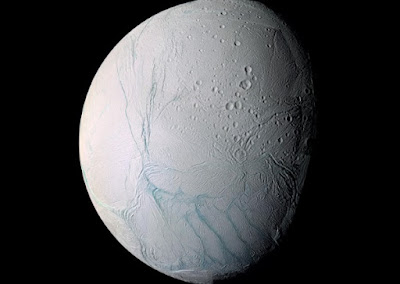More Signs of a Youthful Solar System
Big ideas are often thwarted by little things. In this case, "little" is a relative term; I can't stuff dwarf planet Ceres and Saturn's moon Enceladus into saddlebags and ride across the Arizona territory with them, after all. At any rate, when compared to planets and so forth, small things are causing cosmic evolutionists some big trouble. They get a mite ornery when their theories fail to predict what is discovered way out yonder.
According to ASS (Age of the Solar System), ice volcanoes on Ceres should not have the energy to be active. Likewise, the Rosetta orbiter is reporting that Comet 67P is breaking up (they're comets, they do that). The south pole of Enceladus has a whole heap of activity that cannot be explained, so scientists resort to a cheap trick to rescue their deep time belief system. It takes a great deal of commitment as well as cognitive dissonance to reject evidence for a recent creation of the solar system (and the entire universe for that matter). To read about these items and more, click on "Small Planetary Bodies Unexpectedly Active". For a related article on the troubles that Titan is causing secular astronomers and cosmologists, click on "Dry Titan Has Static Cling".
 |
| Tiger stripes on Enceladus, credit: Cassini Imaging Team, SSI, JPL, ESA, NASA (usage does not imply endorsement of site contents) |